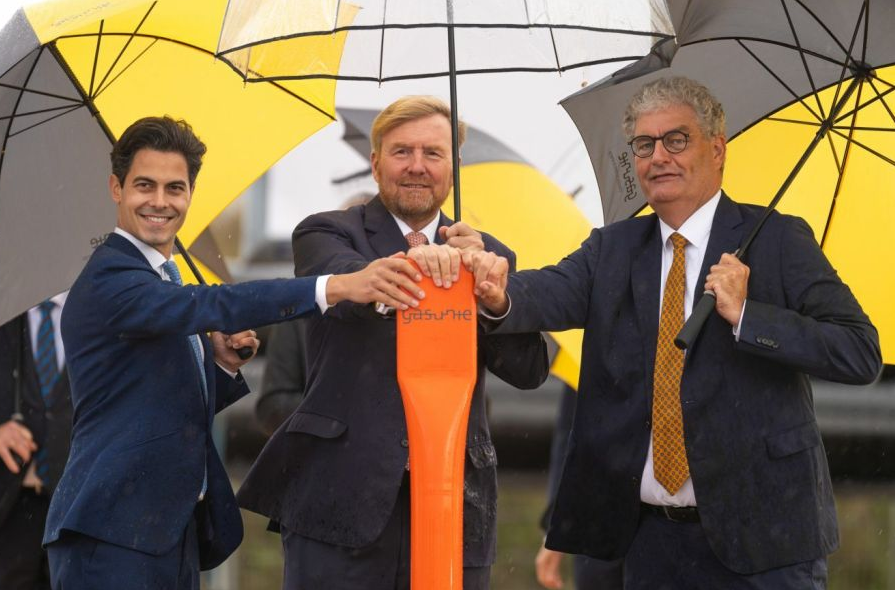Phase 1 of the 1200km Hydrogen Pipeline Network in Netherlands Kicks Off
From:
Zhonglin International Group Date:11-03 1362 Belong to:Industry Related

On October 27, 2023, William Alexander, king of Netherlands, attended commencement ceremony of the first phase of the 1200km hydrogen pipeline at the Tweede Maasvlakte Industrial Park in Rotterdam.
The project costs 1.5 billion euros and is expected to be put into use in 2025. Starting from 2030, the hydrogen pipeline network will connect to major industrial areas in Netherlands, Germany and Belgium. Since 2022, the Dutch government has commissioned Gasunie to develop a hydrogen pipeline network. The construction process of the project will adopt sustainable and zero emission facilities, utilizing solutions such as Gasunie's unique HyTap technology, to enable end users to connect to the pipelines safely.
The first phase of the network is about 30 kilometers long and will run from Tweede Maasvlakte Industrial Park in Rotterdam to Pernis. The entire pipeline network will be modified from a natural gas pipeline network, which will be linked to large hydrogen production facilities, seaport import terminals, and Dutch and international companies.
Hans Fennema, CEO of Gasunie, stated that he is pleased that the construction of the Dutch hydrogen pipeline network has begun. This is a new milestone in the transition of Netherlands and Northwestern Europe towards sustainable energy. He expressed gratitude to all partners for their continuous and unremitting efforts.
As a world-renowned "windmill kingdom" for its inventions and creations, Netherlands places great importance and leadership on renewable energy as it has developed a multi-dimensional development path for hydrogen energy, including:
Firstly, scale up hydrogen production through the use of carbon capture technology (CCS) and the utilization of existing infrastructure.
Secondly, develop the needs of end users. Currently,Netherlands is conducting multiple specific projects focusing on developing the demand for liquidity (land, water, air), households, and large industries (such as steel production)
Thirdly, fully utilize existing infrastructure for renovation and upgrading. For example, utilizing existing infrastructure (ports, backbone and home connection pipelines, large-scale storage capacity for hydrogen and CCS) to develop demand, production (North Sea), and connect with neighboring countries.
Fourthly, establish a transition channel from natural gas to wind and hydrogen at North Sea. Finally, provide policy support for blue and green hydrogen. Netherlands has provided extensive policies for the development of hydrogen energy, aiming to support the introduction and development of blue hydrogen (burning natural gas) and green hydrogen as accelerators.
Netherlands plans to become an important contributor to global hydrogen technology development by playing a leading role in the following six major areas: hydrogen production, hydrogen distribution, hydrogen mobility, fixed hydrogen storage, safety and data safety (including testing), as well as reuse, secondary use, and recycling.



